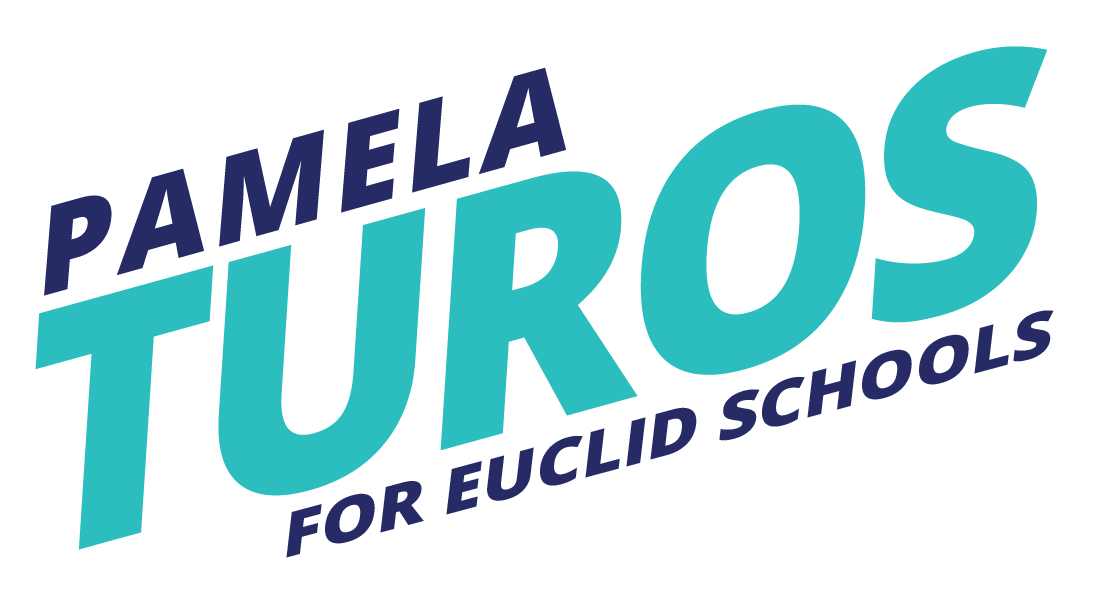Charting a New Course
Dear Neighbors,
On Wednesday, December 8, Selina Wright and I attended our second board meeting since being elected. If you follow local news and social media, you know the meeting was a tense one. With teacher contracts still being negotiated, a rally of support was coordinated by the Euclid Teachers Association before and during the meeting.
Longtime board members Tish Thomas and Angela Lisy, both retiring, were recognized for their years of service. The traditional celebration of taking a recess during the meeting for cake, however, was ill-timed and not well received by the audience.
Teachers, community members and former students spoke during the public comment period, urging a “fair contract now” with heart-provoking stories and calls to action. As board members elect and parents of Euclid students, Selina and I took it all to heart. We know we are walking into a storm, and we don’t even know yet what issues we will be asked to help resolve. Once we take the oath of office, we’ll be updated on the negotiations. Like the current board members, though, we are not able to discuss any aspects of the negotiations in public.
In his recent State of the Schools address, Cleveland Metropolitan School District CEO, Eric Gordon, used the analogy of steering a ship — explaining that education as a whole, especially urban education, needs to set a new course. “Let’s face it,” he said, “even in the best cases, the school systems that many are striving to return to in America were built for an agrarian society in an industrial age, not for a global society in the digital age.”
It’s true that the pandemic is challenging us to rethink everything we believed about education and community, and we are still in the middle of the storm. This is also a once in a lifetime chance to let go of what doesn’t serve us and chart a new path.
Dr. Mark Joseph, founder of the CWRU National Initiative on Mixed Income Communities has been known to say that “everyone wants progress, but very few people are comfortable with change.” Change is hard, and it often comes only after an upheaval.
Authentic community change is a long-term commitment, and it starts with the development of an effective team — identifying our roles, developing our communication strategy and defining the expectations we have of each other. That is where we are at now.
For my part, I am looking ahead to the work of repairing trust and building relationships both inside and outside of the schools. I think we can all agree that Euclid is at a critical juncture for community change, but it can’t happen overnight and the “storming” will have to subside before our work together can begin.
What comes next, though, has the potential to benefit us all. Is this unchartered territory? Yes. But if the pandemic has taught us anything, it’s that our educational system is the lifeline of our community, and we are all in this together — good or bad.

